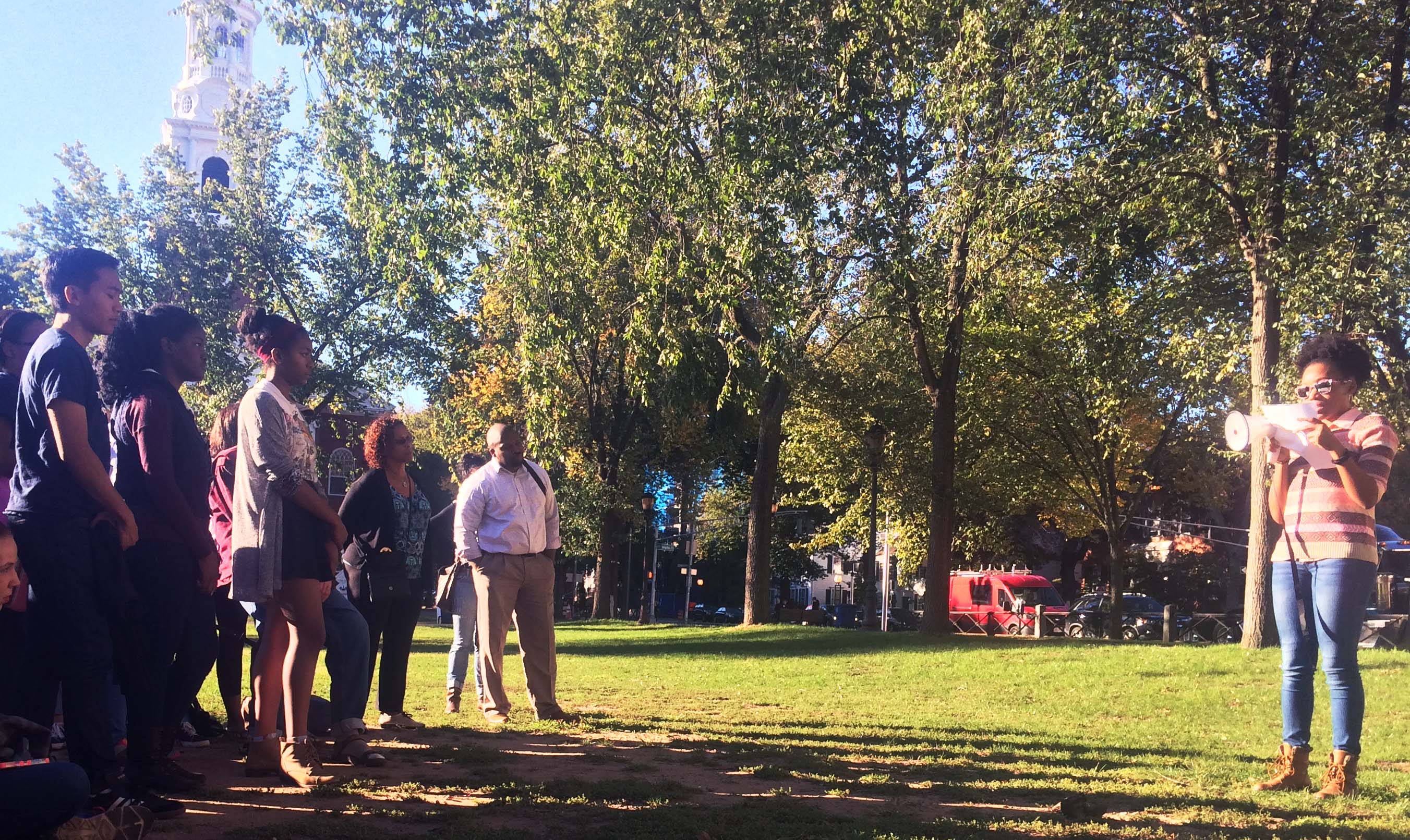
Social justice advocates called for new legislation to fight the criminalization of youth of color at Sunday’s Juvenile Justice Reform March.
The three-mile march and subsequent demonstration on the New Haven Green — co-organized by Yale’s chapter of the NAACP and the Joseph Slifka Center for Jewish Life — drew a crowd of more than 80 university students, state and local legislators and activists from Greater New Haven.
“We need voices, help, interest and obvious demonstration to tell people that all children’s lives matter,” state Rep. Toni Walker, a speaker at the demonstration, said.
Abby Johnson ’16, who came up with the idea for the event, said she drew inspiration from participating in the NAACP’s “America’s Journey For Justice,” a 1,000-mile social justice march from Selma, Alabama to Washington, D.C. She said she wanted to bring people of different backgrounds together to express their frustrations over the racially motivated injustices of the past year.
Brea Baker ’16, president of Yale’s NAACP, said she worked with Johnson and Rabbi Leah Cohen of the Slifka Center to incorporate juvenile justice reform — a hot topic among New Haven and state legislators — into the march. Cohen and Johnson said the crowd, which included representatives from nearly 100 social justice organizations, highlighted the issue’s relevance to all society members.
Walker noted that while ethnic minorities make up only 21 percent of the nation’s youth population, they make up 82 percent of minors in the criminal justice system, reflecting a “ridiculous disparity” and prejudice against youth of color.
“We have become a nation of hashtags,” said Sierrah Smalls, president of W.R.I.T.E. Poetry Club at the University of New Haven, in a poem she wrote and performed at the event.
Smalls added that she hopes the public will eventually internalize the national Black Lives Matter movement’s message.
“Maybe in the next life … we’ll realize that black lives do matter,” she said.
Walker worked with Mayor Toni Harp to raise the age of adult jurisdiction from 16 to 18, a change that preceded a roughly 50 percent decrease in the number of minors in adult prisons since 2012. Despite this success, Walker said there is more work to be done toward building communities in which fewer minors end up in prison.
Barbara Fair, founder of My Brother’s Keeper, a grassroots organization that speaks out against systems of oppression in the nation, said she has been pushing for legislation to increase the age of adult jurisdiction to 21. Her position is informed by scientific evidence that brains are not fully developed until the age of 25, she said.
Fair added that she believes the only way to produce change is by dismantling what she called the core of our criminal justice system: white supremacy and black inferiority.
Common Cause’s Director of Voting and Elections Allegra Chapman said part of the problem is that America’s democratic body is not representative of the population, as 92 percent of legislators are white men.
“It can feel very discouraging when black and brown boys and girls are being targeted by the community that is tasked to care for them,” Chapman said.
Chapman added that there is an immense amount of work to be done to bring justice and equality to young people of color. But she said the responsibility lies with the millennial generation, which can encourage progress through means such as attending marches.
Aidan Kaplan ’17, who learned about Sunday’s event from the Slifka Center, said he plans to make attending social justice demonstrations a priority.
“There’s no march without marchers,” Kaplan said.
Connecticut abolished juvenile life sentences without parole in June.







